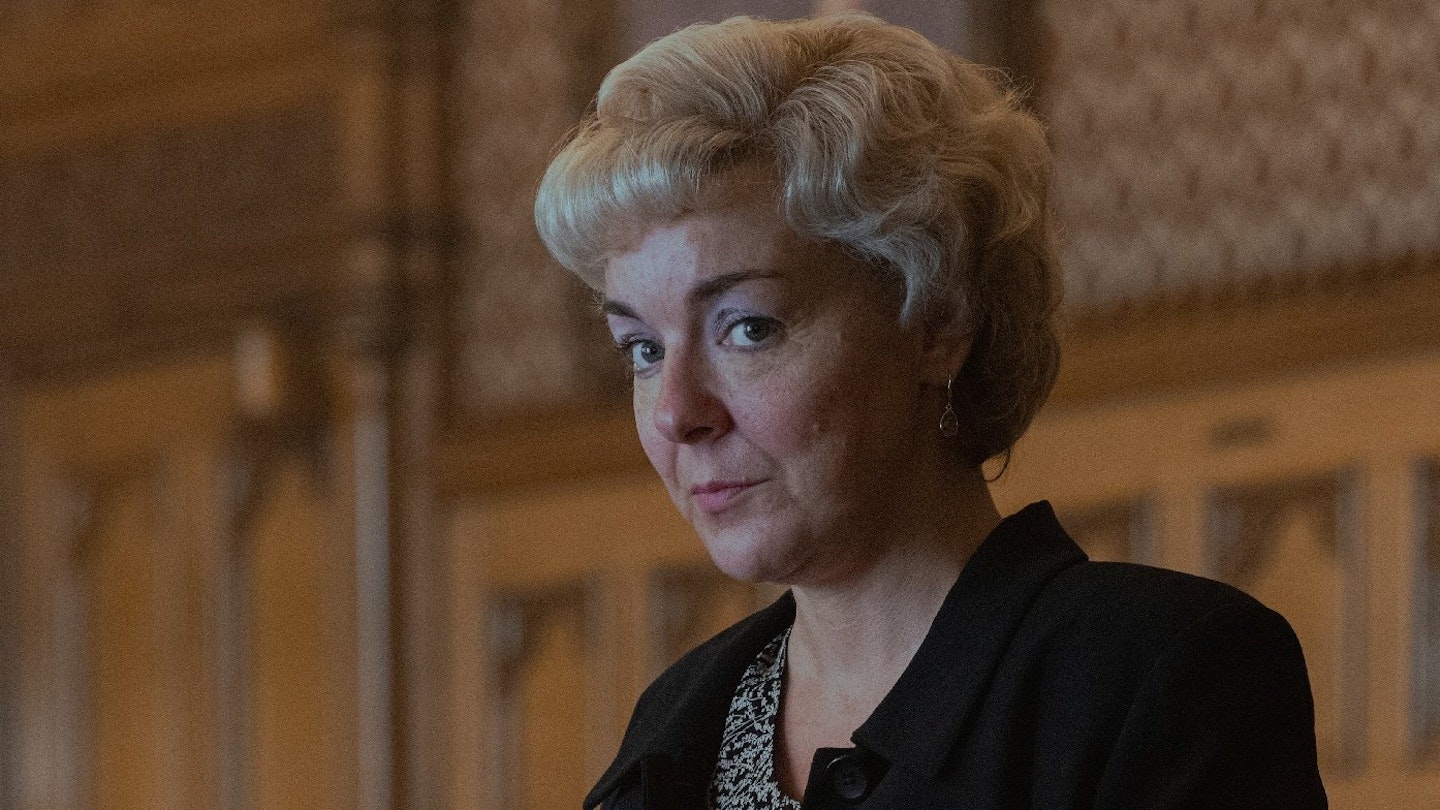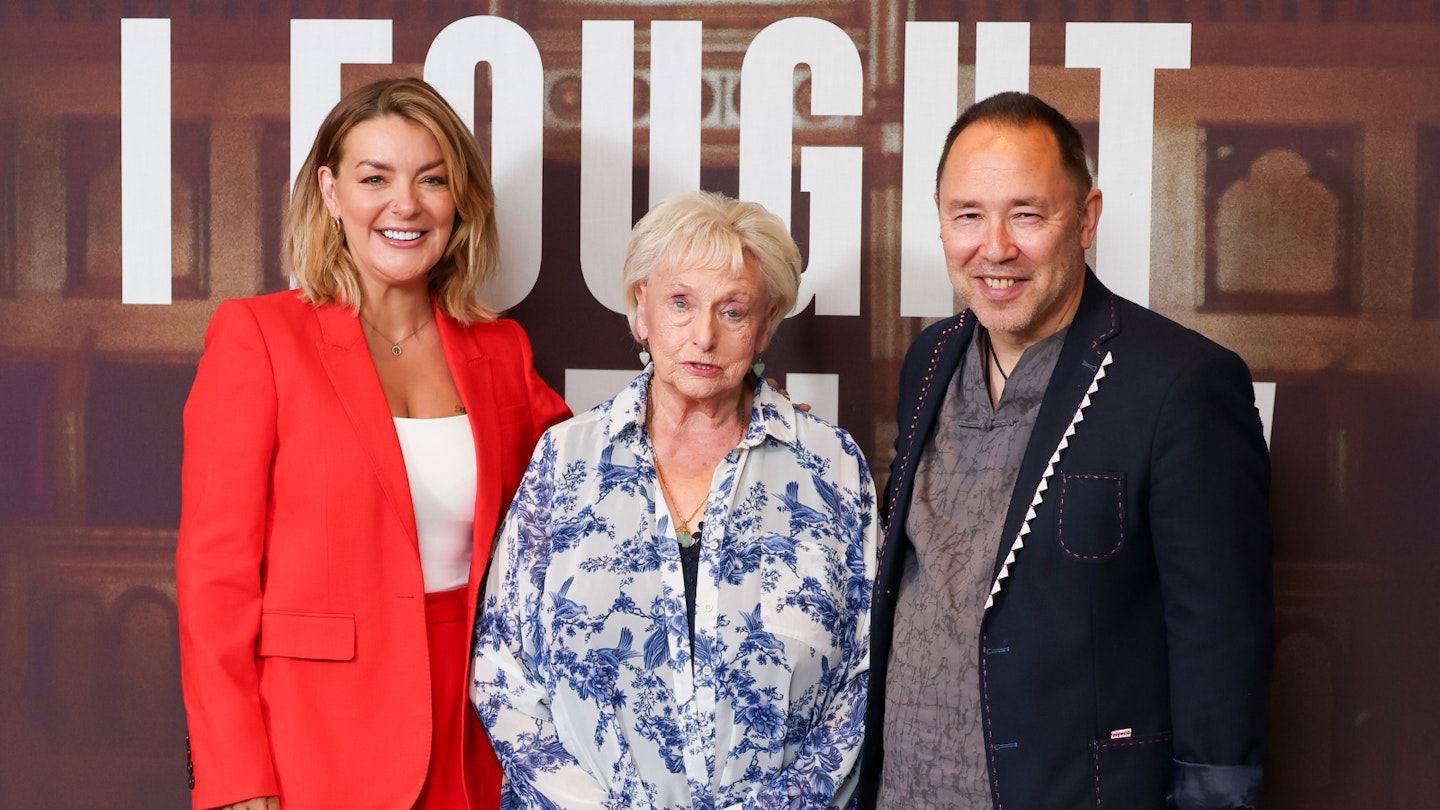At a recent press panel for ITV’s new drama I Fought the Law, I had the great pleasure of listening as Ann Ming shared her reflections on the long and painful road to justice for her daughter Julie Hogg.
Ann's tale is now being brought to life on screen by actress Sheridan Smith, who played Ann in the 4-part drama. Her true story is one of unimaginable tragedy and unrelenting determination which will emotionally impact all who see it.
The series shines a light on the proud Northern woman who helped overturn an 800-year-old legal principle, and whose courage changed the course of British justice.
What happened to Ann Ming?
As I Fought the Lawdetails, in 1989, Ann Ming’s life was changed forever when her 22-year-old daughter, Julie Hogg, disappeared from her home in Billingham, County Durham. Julie was a young mother and pizza delivery driver. Ann immediately suspected something terrible had happened, but initial investigations by Cleveland Police failed to locate Julie or uncover any evidence of a crime. Forensic officers even searched Julie's home but didn't find anything.
Ann’s instinct never wavered and as parents among us can attest, you know your children. Despite police assuming (and trying to convince Ann) that Julie had run away, she was convinced something had happened inside Julie’s house. In a devastating moment, Ann then discovered her daughter's decomposed body behind a bath panel in her house, 80 days after she had gone missing.
"I was convinced something had happened to my daughter from day one," Ann recalls during the panel. "The missing from home team seemed to think she had gone to London. I knew that wasn't right. I think when I found Julie, it gave me strength, because I’d been proved right."
That moment sparked the beginning of a campaign for justice that would span more than 15 years and eventually result in an historic change to British law.
What happened to Billy Dunlop?
Billy Dunlop, Julie’s former boyfriend, was arrested and charged with her murder. He stood trial twice in 1991, but both trials ended with hung juries. Under the ancient double jeopardy rule, Dunlop was acquitted and could not be tried again for the same crime.
Years later, Dunlop confessed to Julie’s murder while serving time in prison for another crime. He believed he was untouchable due to the double jeopardy law, but Ann Ming was not prepared to let that be the end.
"The reason I campaigned to change the double jeopardy law was because it was a common-sense approach," Ann says. "Never mind the law was 800 years old. That didn't matter to me. If there's been a proven wrongful conviction, I'd be the first to say that person should be freed. But when there's been a proven wrongful acquittal, such as our case... that was not right."
Ann campaigned tirelessly, lobbied MPs including the then Home Secretary Jack Straw, wrote to officials, and took her case to the media. Ultimately, her determination, intelligence and grit won over politicians in high places, as I Fought the Law details.
Finally, in 2003, Ann's efforts led to a change in UK law through the Criminal Justice Act to allow retrials in serious cases where new and compelling evidence emerged. Ann had to battle to then have the change applied retrospectively to Dunlop's case, but he became the first person in UK legal history to be retried and convicted for the same crime. In 2006, 17 years after Julie's disappearance, he was sentenced to life imprisonment for murder.

Was Ann Ming a nurse?
Ann Ming worked as a theatre nurse. She believes her background in healthcare gave her a calm determination and an ability to talk to people from all walks of life, qualities that helped carry her through years of tireless campaigning.
Despite being surrounded by legal professionals, politicians, and police officials, Ann never saw herself as less than them. "People say, 'Oh, weren’t you intimidated going into the House of Lords?' No. Why would you feel intimidated by people? Nobody's any better than you. We’re all equal," she says. "I think working with surgeons in operating theatres for thirty years put me in good stead."
Although it seemed as though the odds were stacked against her, Ann's attitude, driven by the love for her daughter, helped her to get the law changed. "I don’t know why they were so frightened of changing it in this country. I think they thought they were going to open flood gates, but the safeguards built into the new law are so stringent."
Bringing the story to screen: ITV's I Fought the Law
ITV's drama I Fought the Law brings Ann Ming’s incredible story to a wider audience, with Sheridan Smith taking on the lead role.
Smith was unaware of Ann’s story before receiving the script. "When I got the script, I didn't know Ann's story, so I Googled and watched all the documentaries, read Ann’s book For the Love of Julie. It's all in Ann's words. And I just thought, how has this story not been told yet?"
She tells us that portraying Ann was both an honour and a heavy responsibility that took an emotional toll, especially as it was the first role the actress had taken on since becoming a mother herself. "To have lived through that and to be here and to achieve what she did, I'm absolutely in awe of her," she says. "The strength it took for Ann to keep fighting. It was one thing after another. It’s relentless."
Ann herself was closely involved in the development of the drama, and is pleased with the end product: "When I watched all the episodes and watched the emotion Sheridan was showing I felt she'd really got inside me. I've lived 35 years like that. It is a horrible story. But the outcome at the end is we got the justice and the law’s changed."
Executive producer Liza Marshall echoes the importance of Ann’s story: "It was just the most inspiring story, this absolutely incredible woman going up against man after man after man, all the doors slamming in her face, and she just kept going."
Co-executive producer Charlotte Webber adds: "What I hope people take away from this is that a working class, northern woman who was dealt a terrible injustice would not let it go. Ann approached every office in the land with a photo of her daughter and appealed to their human side. I hope that people watch Ann, and celebrate that in a story that had such tragic beginnings, she was able to find hope and justice in the end."

The personal cost
Ann’s campaign came at great personal cost as she navigated the grief of losing her daughter, plus still needing to parent Julie's siblings, be a grandmother to Kevin, Julie's son. Ann and her family endured years of emotional strain. “You're a family of five and all of a sudden you’re a family of four,” Ann says. “I got an MBE for services to criminal justice but I'd give anything to have my daughter and not a badge.”
In spite of everything, and as testament to tenacity of the woman who sat before me during the press panel, Ann still found strength and light, especially in the people who stood by her. She gave special thanks to Mark Braithwaite, the detective who supported her from the day Julie was found through to the final conviction. "Mark Braithwaite has been my saviour throughout. He came in the day I found Julie, and he's still there. Over 30 years, we've both aged quite well," she says with a laugh.
Ann also acknowledged the politicians who supported her, including Home Secretary Jack Straw and Lord Falconer, who invited her to speak in the House of Lords.
Legacy and impact
The impact of Ann Ming’s fight for justice is huge. The law she helped change ensures that those who have wrongfully walked free can be retried if compelling new evidence arises. It’s a safety net against the failures of a justice system that once failed her.
"When you get an acquittal, the family is left in the state of limbo because you've got no conviction, so no closure. So I'm glad I did it," Ann reflects.
She also hopes the drama will inspire others to speak out and act when something is wrong. "If people think that something's wrong and they want to put it right, to keep on trying. It didn’t look like a massive thing to me, because it was the difference between getting justice for our daughter and not getting justice."
In the end, Ann Ming’s story is about a mother who refused to be silenced. It's about grief and loss of course, but also about the power of persistence and love.
I Fought the Law will air on ITV and ITV X this autumn, from the 31st August.
Becky Fuller is a senior digital writer for Yours.co.uk. She is also a fully qualified personal trainer and strength coach, specialising in fitness and wellbeing for over 50s. Prior to joining Yours, Becky was a fitness writer for Saga, and a freelance entertainment and theatre journalist.
